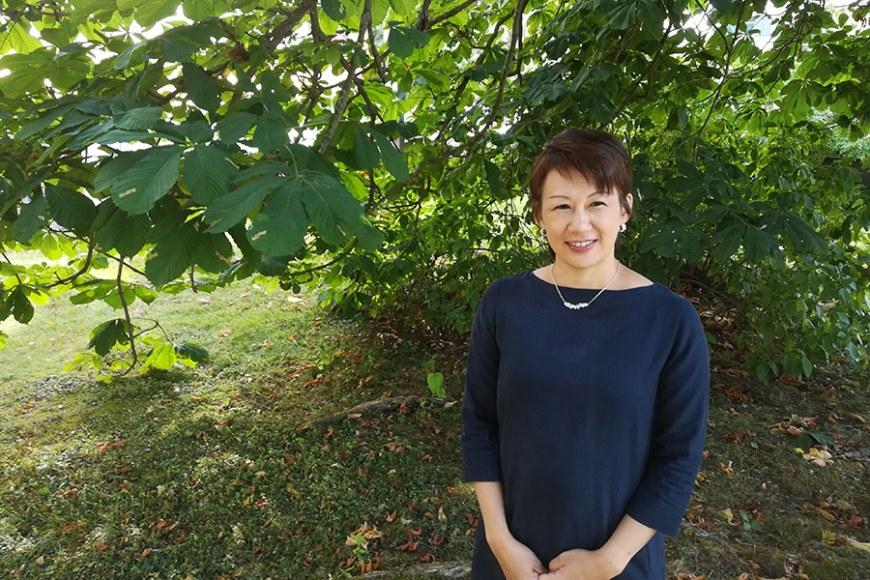
The wholesomeness of Finland’s social institutions has been the focus of Japanese interest since the 1960s. Since around 2003, the Japanese media have used the term Finrando būmu (Finnish cultural boom or Finland boom) in reference to their representations of Finland. This term describes the growing interest in Finland and implies that Finland deserves attention because it is a ‘fascinating’ country. Previous research on the idea of Finnishness in Japan has mainly focused on the period during and after the Finland boom. However, this study focuses on the period before the Finland boom as well, particularly by examining the representations of Finnish director Aki Kaurismäki’s films in Japanese magazines.
Fuse’s research examines how the idea of otherness, such as Kaurismäkiness and Finnishness, is constructed, produced, articulated and circulated in contrast to the idea of Japaneseness in reviews of Kaurismäki’s film s in Japanese magazines (1990-2008) in the social and cultural contexts of Japan. This study also addresses how film reviews in Japanese magazines – not only cinematic magazines but also general and popular magazines – affect the construction of otherness. In addition, it contributes an empirical analysis of Japanese interpretations of Kaurismäki’s films.
The empirical analysis demonstrates that these interpretations can be divided into two temporal phases: (1) from 1990 to 2003 and (2) after 2003. This division is related to the Finland boom media trend, changes in the Japanese film industry and the increase in international attention to Kaurismäki’s films. The analysis demonstrates that the idea of Kaurismäkiness is constructed via an ‘us’ versus ‘them’ dichotomy, and the meanings of Kaurismäkiness and Finnishness are flexibly transformed: they are split off and sometimes articulated as intertwined with each other, depending on the context.
During the first phase, Kaurismäki’s films were interpreted as legitimising the collectively shared imagination of what was referred to as the ‘essence of Japanese culture’. Although Kaurismäkiness is abstracted from the Finnish context, it is associated with the Japanese context and constructed as resonating with Japaneseness. Finland is represented as a remote country or as a periphery in Europe producing an eccentric film director whose cinematic style is not yet sophisticated. During the second phase, the reviews created a metonymic link between Kaurismäki’s films and Finland, and the films were interpreted as accurate representations of Finland. At the same time, the idea of Finnishness was also articulated to identify similarities between Finland and Japan.
The analysis posits that this practice of representation corresponded to a market demand in the context of the Finland boom in which Finland is represented as: (1) a fascinating country and (2) Japan’s reachable and attainable Other. The fluidity of meanings observed in this study postulates that Finland is a convenient and flexible Other, which can be interpreted and translated according to audiences’ and consumers’ desires.
Another finding is that Japanese interpretations of Kaurismäki’s films were imported from outside Japan via press sheets and famous film scholars and reviewers, and that they were located in and articulated with other representations and produced their own meanings of films in the context of Japan. Certain topics and themes are selectively chosen to interpret Kaurismäki’s films in the Japanese reviews (e.g., the theme of the silence of ordinary people, but not that of a social class). This study sheds light on how film reviews in Japanese magazines take part in the construction of otherness, and how the commercial requirements of film reviews influence the way in which the reviews are written.
The doctoral dissertation of Master of Cultural Studies Rie Fuse in the field of cultural studies titled Othering Finland in Japan: Representation of Aki Kaurismäki’s films in Reviews in Japanese Magazines will be publicly examined in the Faculty of Information Technology and Communication Sciences at Tampere University at 12 o´clock on Friday 13 August 2021. The venue is Pinni B building auditorium 1096 at the City centre campus. The opponent will be Academy Research Fellow Outi Hakola from University of Helsinki will be the opponent, while Associate Professor Katja Valaskivi will act as the custos.
The even can be followed via remote connection.
The dissertation is available online.
Photo: Eero Julkunen
